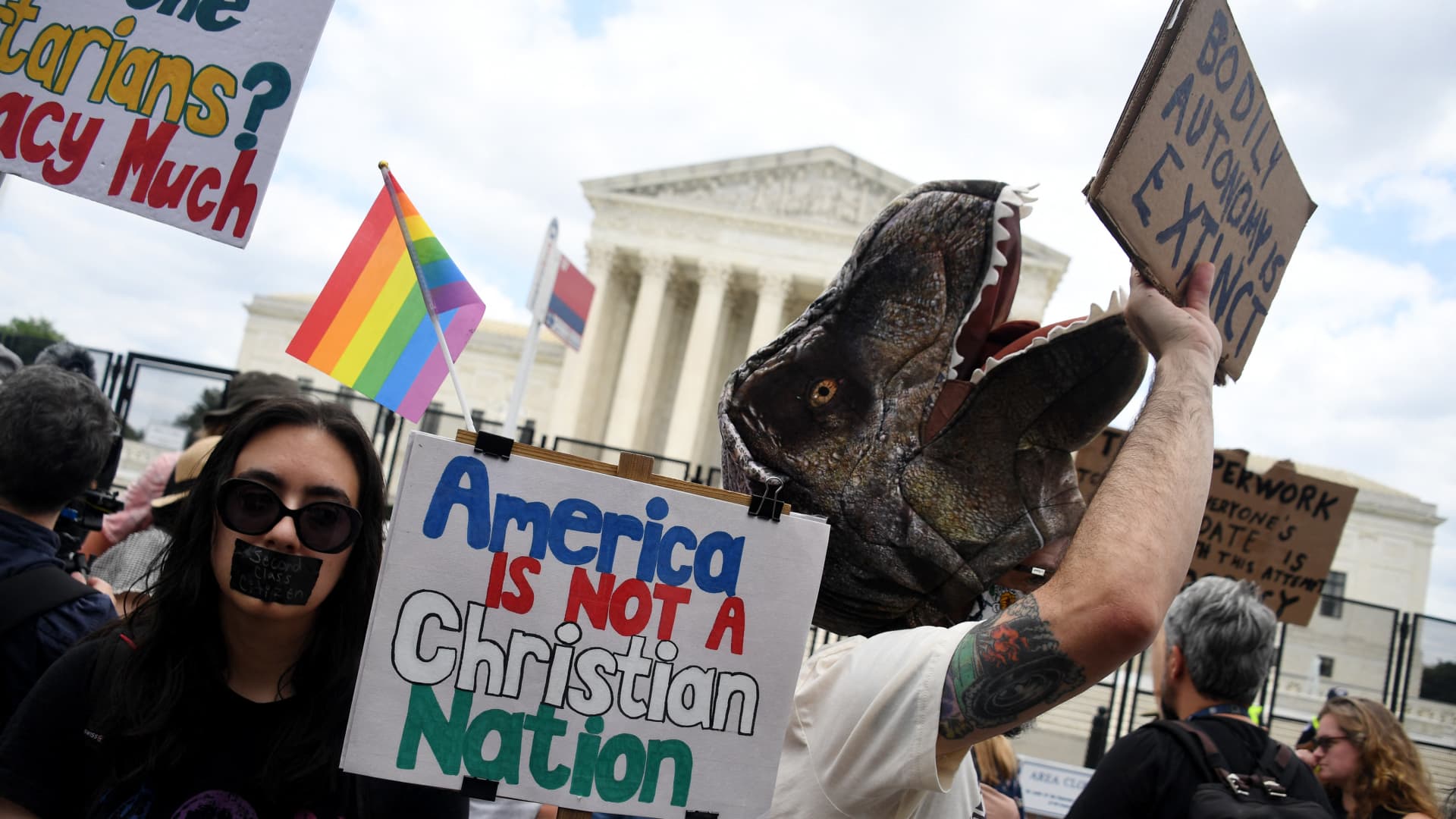The Supreme Court’s decision to overturn Roe v. Wade on Friday may cause financial hardship for many women, especially those already facing economic instability, research shows.
The court’s decision, ending 50 years of federal abortion rights, allows individual states to set their own laws, and nearly half are expected to outlaw or severely restrict abortion as a result of the ruling.
“It sadly affects the most marginalized women — women of color and people who are economically unable to access abortion,” said Carolyn McClanahan, a Jacksonville, Florida-based certified financial planner, physician and founder of Life Planning Partners.
More from Personal Finance:
Here’s what you can expect in a typical recession
How to save money at the pump, with or without a federal gas tax holiday
Proposed changes to retirement system get approval from Senate committee
While wealthier women living in states with abortion bans may still travel for the procedure, those with fewer resources may not have that option, explained McClanahan, who is also a member of CNBC’s Advisor Council.
Caitlin Myers, an economics professor at Middlebury College who three years ago started modeling the effects of Roe v. Wade being overturned, emphasized that many of the women most severely affected already have children.
More than 150 other economists and researchers, including Myers, filed an amicus brief with the courts showing the connection between women’s access to abortion and economic opportunity.
Abortion access affects women’s finances
While the Supreme Court’s majority opinion briefly addresses how overturning Roe v. Wade may affect women’s lives, it concludes the court can’t predict the impact, Myers said.
“That just ignores an enormous body of credible and rigorous scientific research,” she said, pointing to recent evidence from the Turnaway study, which tracked nearly 1,000 women seeking an abortion at 30 clinics across the U.S. from 2008 to 2010.
These women’s finances were trending similarly, “until that crucial moment,” where some who wanted abortions were turned away, she said. Those who were denied an abortion and gave birth resulted in years of financial hardship, the study found.
Among those denied an abortion, there was an increase in household poverty for at least four years relative to those who received an abortion, and years later, these women were more likely to lack the money to cover basic living expenses like food, housing and transportation.
What’s more, being denied an abortion lowered these women’s credit scores, boosted their debt and increased negative financial records, such as bankruptcies and evictions, the study found.
While the right to abortion may remain legal in more than half of the states, “the impact would be absolutely enormous” if it’s banned nationwide, Myers said.
“This is a big setback for women’s rights, both from a health and an economic standpoint,” McClanahan added.
